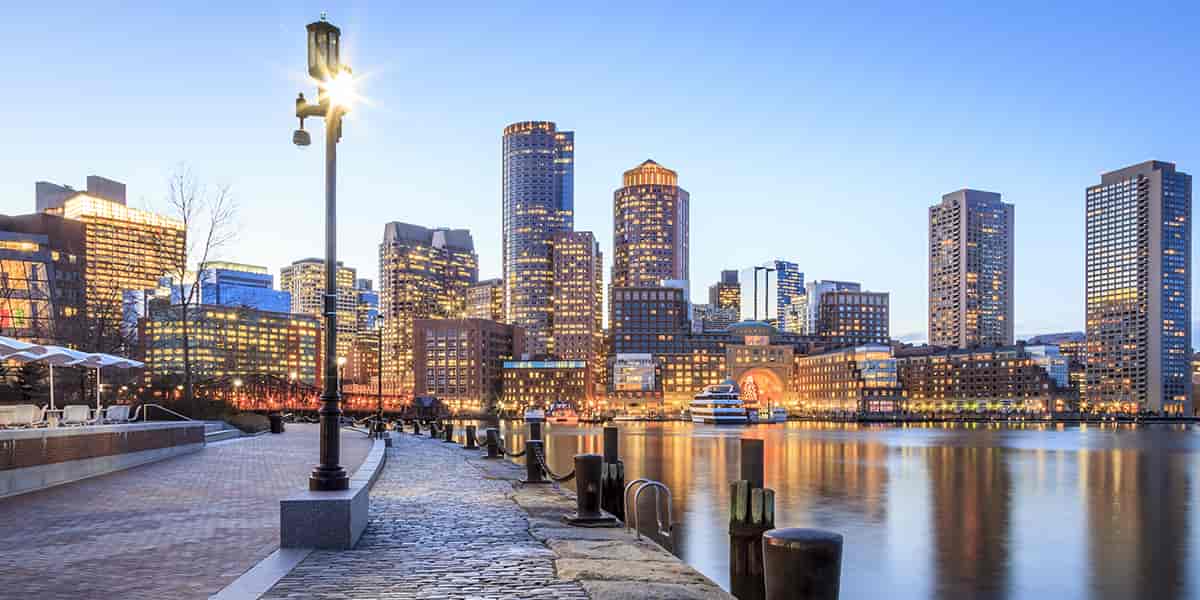Suboxone Doctors in Massachusetts
Find Suboxone Doctors in Massachusetts
Where to Find a Suboxone Doctor in Massachusetts

If you are looking for a suboxone doctor in Massachusetts, your best bet is around the Boston area. The western half of the state is deficient in such doctors except in Springfield, and there are only a few southeast of Boston around Plymouth.
Suboxone doctors in Boston
Boston by far has most of the doctors in Massachusetts who will prescribe suboxone.
You’ll find many them scattered around downtown, close to Massachusetts Avenue and Storrow Drive. A little west, close to Arborway, there are a few more, especially at the Faulkner Hospital.
Cambridge has a few close to Harvard University, between Broadway and Massachusetts Avenue. Further north, where I-93 meets I-95, there is a large cluster of suboxone clinics off Washington Street.
Lynn and Salem have a couple each, on Lynnway and across from the North Shore Medical Center Salem Hospital respectively.
South of Boston, Quincy has a few, on Coddington Street, Hancock Street, and School Street.
Follow the Massachusetts Turnpike west and you’ll find a surprising amount of suboxone doctors in Framingham and Natick, mostly south of the highway. Framingham’s are close to the Framingham State University, while Natick’s are closer to Cochituate State Park.
Read more about Suboxone doctors across MassachusettsSuboxone doctors in Springfield
The city of Springfield and the surrounding area has a modest collection of suboxone doctors, primarily south of I-90. In Downtown Springfield you will find them on Maple Street, Dwight Street, and Chestnut Street.
West Springfield has a couple of suboxone doctors, one off Memorial Avenue and the other on Park Avenue.
In East Longmeadow, you’ll find a few clinics between Dwight Road and Main Street. A little north, close to the Five Town Plaza, there are a couple places at the corner of Allen Street and Bicentennial Highway.
Suboxone doctors in Pittsfield and Western Massachusetts
Most of the suboxone friendly doctors along the west edge of Massachusetts are in Pittsfield, though there is at least one in Great Barrington. That one is along Maple Avenue, west of the East Mountain State Forest.
Up in Pittsfield, all your choices will be next to South Street or North Street, south of the railroad tracks.
If you want to stick closer to I-90, then on US Route 20 there is a suboxone clinic north on Lenox, next to Kennedy Park.

Suboxone doctors in Plymouth and Southeastern Massachusetts
There are a couple of suboxone doctors along the ocean. In Plymouth, you will find them closer to the water than to the highway, east of Main Street.
There is a couple close to Blue Star Memorial Highway, by Lakeville and Wareham.
Out on the peninsula your best bet is close to Hyannis, off Attucks Lane or Camp Street.
About Opioid abuse and addiction
Opioid abuse can be a serious problem for too many people. Whether the addiction comes from prescribed painkillers or abusing recreational drugs such as heroine, quitting any opiate is a difficult task.
Thankfully, you no longer have to go to a federally controlled methadone clinic to seek assistance in cleansing yourself of an opioid addiction. This is good if you want to stay under the federal radar, or if you want to avoid the potentially harsh side effects of methadone.
The Drug Addiction Treatment Act in the year 2000 allowed physicians to prescribe narcotic drugs to help treat opioid addiction. Suboxone was the first such drug legalized, in 2002.
Suboxone is much more effective in relieving opioid dependency than trying to quit cold turkey and has friendlier side effects than methadone.
What is Suboxone?
The medication known as Suboxone is actually a combination of two drugs, buprenorphrine and naloxone. The two drugs work together to alleviate the withdrawal symptoms commonly seen by opiate users and allow the user to wean themselves off of dangerous drug use, while being designed to prevent abuse.
Without the assistance of a medication, only 25 percent of people addicted to opiates manage to go for a year without relapsing. By using Suboxone, the chances of success improve, potentially hitting 60%, provided the person in question is on board with fighting the addiction and making an effort to change their behavior and environment.
Suboxone is available as both a sublingual tablet and as a filmstrip. The first is held under the tongue while it dissolves into the blood vessels located there. The filmstrip is used in a similar fashion, but resembles a postage stamp that completely dissolves in your mouth.
The Role of Buprenorphrine
The main workhorse of the drug, buprenorphrine is an opioid. Specifically, it is a partial opioid agonist. Unlike full opioid agonists like morphine and oxycodone, it does not cause euphoria when taken according to directions, but some people report that it makes them feel normal.
It also has a partial painkiller effect on its own, so you can think of buprenorphrine as an opioid drug with the nasty parts cut off.
Buprenorphrine still triggers the part of the brain that thinks it is receiving an opioid dose, and in this way the drug prevents withdrawal symptoms from occurring. Because the medication stays attached to the opioid receptors for up to 24 hours, it blocks other opiate drugs from causing their high.
The Role of Naloxone
Naloxone is an opioid antagonist, so it clears out any drug currently attached to the opioid receptors. This drug is included in Suboxone to prevent abuse of the medication. When taken orally the naloxone has no effect. But when injected or snorted, naloxone removes the high instead of providing one.
This does have the effect of immediately kickstarting withdrawal symptoms, which further discourages abuse.
Conclusion
If you live near or in Massachusetts and feel the need to escape from an opioid addiction, there is hope. Suboxone can provide the medical assistance necessary to wean yourself off opiates, and there are plenty of doctors to choose from.
References
https://psychcentral.com/lib/how-is-suboxone-treatment-different-than-drug-abuse/ https://www.webmd.com/mental-health/addiction/buprenorphine-for-drug-dependence